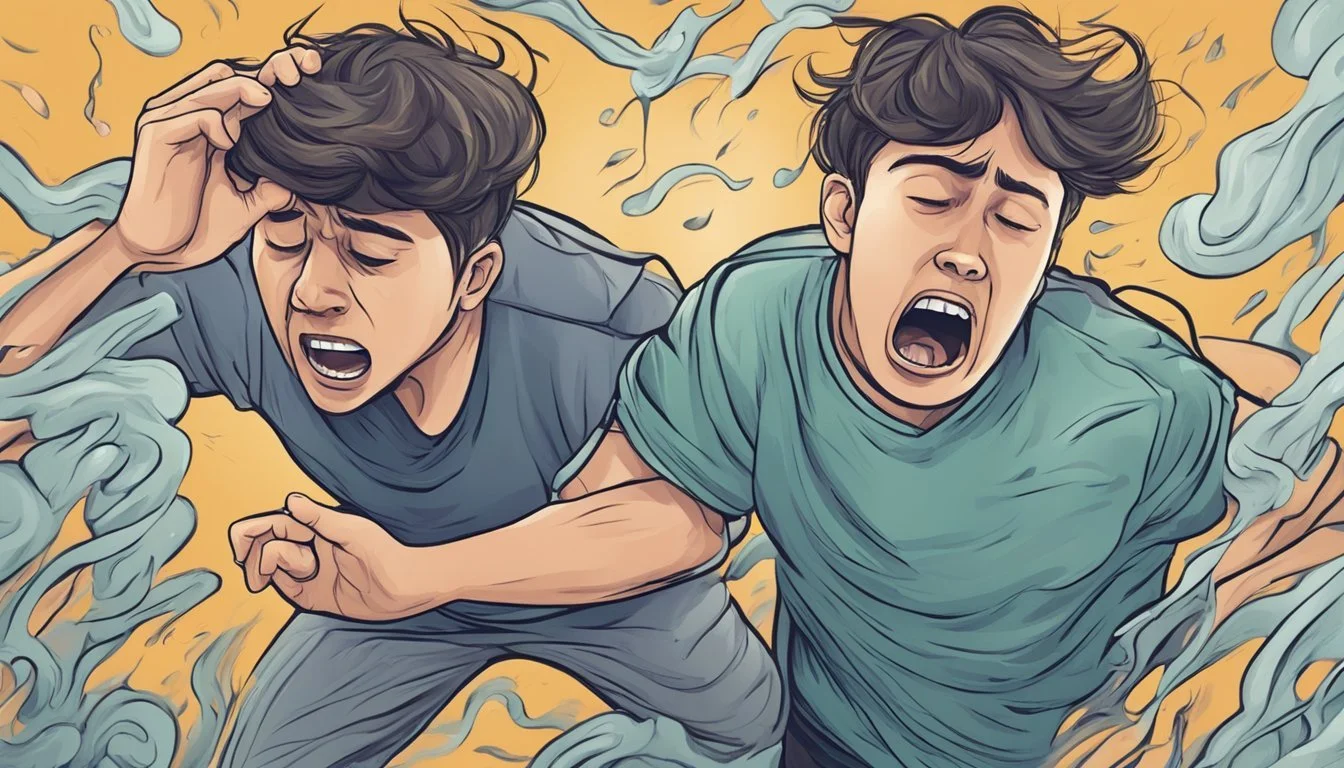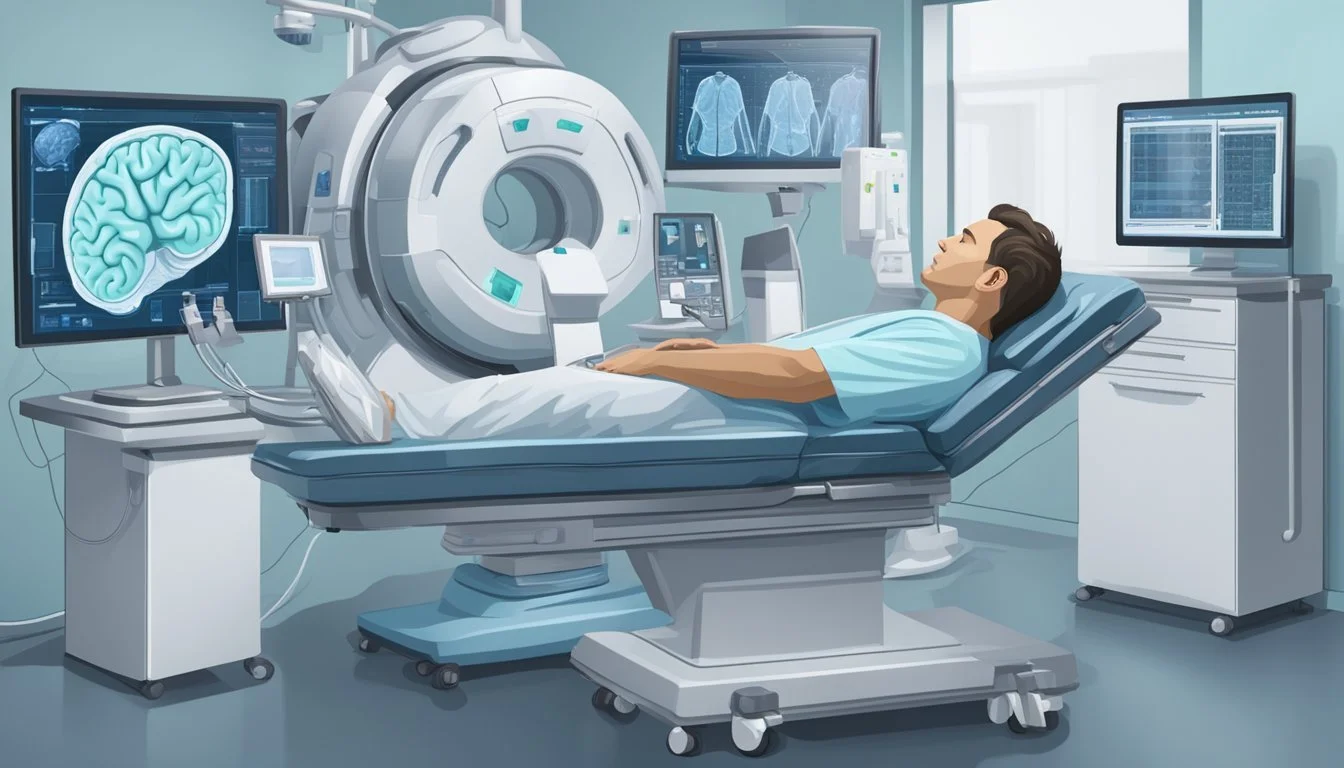Trauma & PTSD
Trauma is an emotional response to a devastating event, such as an accident, sexual assault, or natural disaster. Immediately following the incident, shock and denial are common reactions. Over time, individuals may experience unpredictable emotions, flashbacks, strained relationships, and even physical symptoms like headaches or nausea.
While these feelings are part of the healing process, some individuals may struggle to move forward in life. Psychologists can provide valuable support and guidance to help them effectively manage their emotions.
Trauma can be defined as an overwhelming experience that disrupts an individual's sense of safety and security. It can be caused by a single event or prolonged exposure to stress and danger, and can have serious long-term effects on an individual's mental and physical health. Trauma is a complex concept and understanding the different types of trauma, its symptoms, and how it affects individuals is important for mental health professionals, individuals who have experienced trauma, and their loved ones. In this section, we will provide a comprehensive overview of trauma in psychology.
Types of Trauma
There are different types of trauma; some are caused by a single event while others are prolonged exposure to stress and danger. Acute trauma is a single event or incidents that cause distressful feelings such as accidents, natural disasters and sexual and physical assaults.
Chronic trauma, on the other hand, refers to long-term exposure to stress and danger, such as living in a warzone or experiencing long-term abuse. Complex trauma refers to experiencing multiple traumas, which are usually long-term events and frequently occur during childhood.
Trauma Symptoms
Trauma symptoms can manifest both physically and psychologically. Physiologically, a person may experience fluctuating emotions, anxiety, depression and the inability to relax. The major psychological symptoms of trauma include avoidance, intrusive thoughts, hypervigilance and dissociation.
These symptoms can become overwhelming and interfere with an individual's day-to-day life, in some cases leading to the development of other mental health conditions such as post-traumatic stress disorder (PTSD).
Trauma Treatment
There are various treatment options available for those who have experienced trauma, and the type of treatment recommended depends on the severity and type of trauma. Trauma-focused Cognitive Behavioral Therapy (CBT) is a talking therapy that is used to help manage and alleviate the long-term effects of trauma.
Other therapies such as Eye Movement Desensitization and Reprocessing (EMDR) or trauma-focused medication are also effective therapies. Trauma treatment may also include self-help groups or support groups, which can provide a safe and supportive environment for individuals to speak about their experiences and connect with others who may have shared similar experiences.
Trauma Prevention
Prevention is better than cure, and trauma prevention can start at an individual level by proactively engaging in activities that promote personal well-being such as self-care, mindfulness, and stress-reducing exercises.
It is essential to recognize the signs of trauma and seek help early on before it manifests into long-term mental health problems. Education can provide information on how to maintain a safe and healthy environment and assist individuals who have experienced trauma.
Conclusion
Trauma can have long-lasting effects on an individual's emotional and physical well-being. The impact of trauma can be reduced through early intervention, support groups, and therapy. Understanding the different types of trauma, its symptoms, treatments, and prevention methods can provide a comprehensive perspective on how to manage and cope with trauma.
It is important for individuals who have experienced trauma to know they are not alone, and that help and resources are available. As mental health professionals, family members, and communities, we all play a role in supporting individuals who have experienced trauma and facilitating their path to healing and well-being.
PTSD and Its Relationship to ADHD Symptoms
Investigate the question: can PTSD cause ADHD? Learn about the potential links between post-traumatic stress disorder and attention deficit hyperactivity disorder, including overlapping symptoms, diagnostic challenges, and treatment approaches for both conditions.
PTSD and Its Impact on Sleep Apnea Development
Explore the question: can PTSD cause sleep apnea? Discover the potential links between post-traumatic stress disorder and sleep-disordered breathing, including shared risk factors, symptoms, and treatment options for both conditions.
PTSD and Its Influence on Gastroesophageal Reflux Disease
Investigate the relationship between PTSD and GERD to answer the question: can PTSD cause GERD? Learn about the potential links between post-traumatic stress disorder and gastroesophageal reflux disease, including shared risk factors and treatment approaches.
PTSD and the Emergence of Panic Attacks
Explore whether PTSD can cause panic attacks and how these two conditions intersect. Learn about the symptoms, triggers, and treatment options for both PTSD and panic attacks, and discover strategies for managing these challenging experiences.
PTSD and the Occurrence of Hallucinations
Discover if PTSD can cause hallucinations and how these symptoms manifest. Learn about the relationship between post-traumatic stress disorder and sensory disturbances, including potential triggers, treatment options, and coping strategies.
Psychosis and Its Potential to Trigger PTSD
Explore the question: can psychosis cause PTSD? Discover the complex relationship between psychotic episodes and post-traumatic stress disorder, and learn about potential risk factors, symptoms, and treatment options for both conditions.
Qualifying for Benefits with Posttraumatic Stress Disorder
Explore the question: Can I get disability for PTSD? Learn about eligibility criteria, application processes, and potential benefits available for individuals with post-traumatic stress disorder seeking disability support from various programs.
Therapeutic Retreat for Veterans with Trauma Disorders
Discover Camp Hope PTSD, a therapeutic retreat program for veterans struggling with post-traumatic stress disorder. Learn about their approach to healing, support services offered, and how this unique program helps veterans recover from combat-related trauma.
Examining Trauma Responses in Feline Companions
Explore the question: Can cats get PTSD? Learn about trauma responses in felines, signs of post-traumatic stress in cats, potential causes, and how to support and care for cats that may have experienced traumatic events.
Insightful Expressions on Complex Posttraumatic Stress Disorder
Discover powerful C-PTSD quotes that offer insight, support, and understanding. Explore a collection of statements about complex post-traumatic stress disorder from survivors, experts, and advocates to inspire healing and raise awareness.
Understanding Trauma Responses in NonMilitary Populations
Explore the question: Can civilians get PTSD? Learn about non-military causes of post-traumatic stress disorder, common civilian traumas that can lead to PTSD, and the importance of recognizing and treating trauma in all populations.
Assessing Complex Posttraumatic Stress Disorder Symptoms
Explore C-PTSD test options for assessing complex post-traumatic stress disorder. Learn about available screening tools, their purpose in identifying C-PTSD symptoms, and the importance of professional diagnosis for accurate assessment and treatment.
Understanding Compensation and Pension Evaluations for Trauma
Learn about the C&P exam PTSD process for veterans seeking disability benefits. Understand what to expect during Compensation and Pension evaluations for post-traumatic stress disorder, how to prepare, and its role in determining VA disability ratings.
Neurological Scans to Diagnose Posttraumatic Stress Disorder
Explore the use of brain imaging for PTSD diagnosis and research. Learn about different neuroimaging techniques, their findings on brain structure and function in post-traumatic stress disorder, and how these insights inform treatment approaches.
Understanding Trauma Responses to Persistent Harassment
Investigate the connection between bullying and PTSD. Learn how persistent harassment can lead to post-traumatic stress disorder, understand the symptoms, and explore recovery strategies for those affected by bullying-related trauma.
Healing from Complex Trauma Caused by Narcissistic Relationships
Explore C-PTSD from narcissistic abuse and its impact on survivors. Learn about symptoms, long-term effects, and recovery strategies for complex post-traumatic stress disorder resulting from prolonged exposure to narcissistic behavior patterns.
Ideal Canine Companions for Trauma and Anxiety Support
Discover the best service dog breeds for PTSD and anxiety support. Learn about ideal canine characteristics, training requirements, and how different breeds can assist individuals coping with post-traumatic stress disorder and anxiety disorders.
Understanding Comorbidity of Mood and Trauma Disorders
Investigate the relationship between bipolar and PTSD. Learn about symptoms, challenges, and treatment approaches for individuals dealing with both bipolar disorder and post-traumatic stress disorder, and how these conditions can interact.
Comprehensive Overview of Posttraumatic Stress Disorder
Read our informative article on PTSD to gain a comprehensive understanding of post-traumatic stress disorder. Explore symptoms, causes, treatments, and coping strategies for individuals affected by this complex mental health condition.
Recommended Reading for Understanding and Healing from CPTSD
Discover valuable books for Complex PTSD that offer insights, coping strategies, and healing techniques. Explore a curated list of recommended readings to help understand, manage, and recover from the effects of complex post-traumatic stress disorder.




















